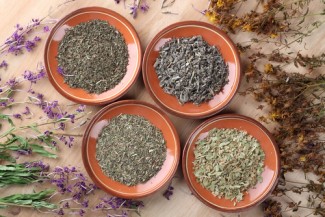Only 21% of herbal supplements tested had accurate ingredient labels, New York AG says

Photo from Shutterstock.
New York Attorney General Eric Schneiderman has sent cease-and-desist letters to four major retailers asking them to stop the sale of allegedly mislabeled store-brand herbal products.
Tests found only 21 percent of the supplements had DNA just from the herbs listed on the product labels, according to a press release, the Associated Press and the New York Times Well blog. Seventy-nine percent of the products either had no DNA from the herb, or included DNA from other plants.
The four retailers are GNC, Target, Wal-Mart and Walgreens.
The retailer with the worst showing for DNA matches was Wal-Mart, the press release says. Only 4 percent of its products had DNA matching the label. At Target, on the other hand, DNA matched label identification 41 percent of the time.
The products tested from three of the stores were gingko biloba, St. John’s wort, ginseng, garlic, echinacea and saw palmetto. The Target tests included valerian root rather than ginseng.
Some of the additional ingredients identified by DNA tests included rice, beans, pine, citrus, asparagus, primrose, wheat, houseplant, powdered legumes and wild carrot. In some instances, the products contained nonplant material that wasn’t identified by the DNA tests.
Failing to identify all of the ingredients in a supplement could cause problems for those with food allergies or who are taking medication that should not be taken with the ingredients.
A Wal-Mart official told AP its own tests haven’t revealed any issues with the products, but it would stop selling the supplements in New York as it conducts a “side-by-side analysis.”
Walgreens and GNC also pledged cooperation, while Target declined to comment pending a review of the full report. A GNC spokesperson added that the chain stands by the quality, purity and potency of all its products.
The Council for Responsible Nutrition, a dietary supplement trade group, told AP that processing of botanical supplements can damage DNA, and DNA tests “may be the wrong test for these kinds of products.”



